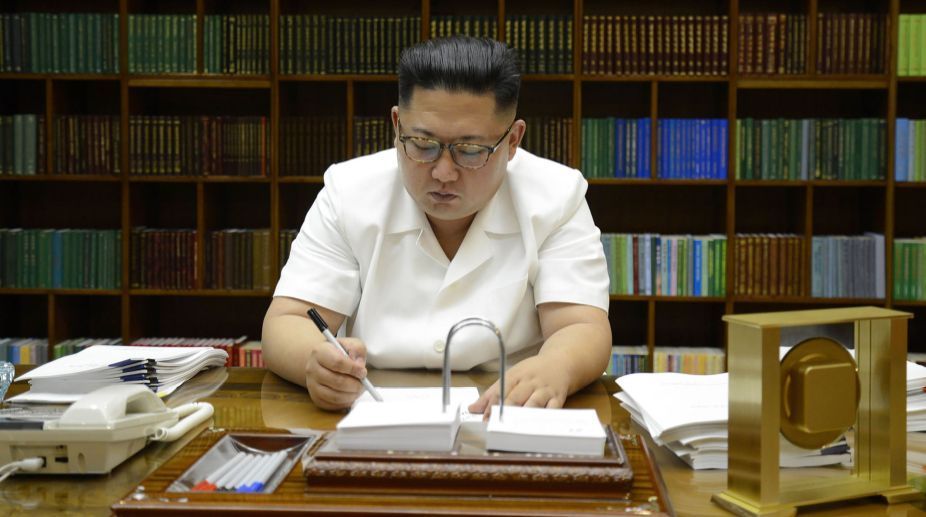It may not be wholly inappropriate, after close to a decade, to recall Barack Obama’s victory chant ~ “Yes we can”. Yet the acronym, ICAN (International Campaign to Abolish Nuclear Weapons) assumes profound significance and across the world in the context of this year’s Nobel Peace Prize.
There are at least three facets to the award announced last Friday ~ the Norwegian Nobel Committee has chosen a global civil society movement for the Nobel prize…and not an individual or even an official organisation. Thus has the committee deviated from a tradition. Sad to reflect, that tradition isn’t always sustained by the winner, the demand to withdraw Aung San Suu Kyi’s award being a conspicuous example.
Second, the conferment is remarkably appropriate in the context of the nuclear build-up and the ballistic missile tests in North Korea and Iran. The committee has plainly been focussed on nuclear proliferation, a development that has in recent weeks had a critical impact on geopolitics, notably on US equations with Pyongyang and Tehran and even in the echo chamber of the UN General Assembly.
The ICAN was set up only a decade ago and only last month it succeeded in getting the UN to ratify a treaty banning nuclear weapons. Yet another notable aspect of the latest award is that the Nobel committee is seldom known to have been concerned with matters nuclear. It bears recall that only once ~ in 1995 ~ the prize was awarded to the anti-nuclear Pugwash Conference, the organisation set up in 1957 by Bertrand Russell and Joseph Rotblat to promote Einstein’s deathbed warning against the bomb. Sixty years later, the nuclear threat is dangerously real.
The reality from Pyongyang to New York via Tehran makes Friday’s award so profoundly critical. It is a reality that can be contextualised with the Nobel committee’s direct appeal to the likes of Donald Trump, Kim Jong-un, Hassan Rouhani and indeed the leaders of other nuclear-armed countries. Verily have the world’s nuclear powers been urged to “initiate serious negotiations with a view to the gradual, balanced and carefully monitored elimination of the almost 15,000 nuclear weapons of the world”.
Ergo, the International Campaign to Abolish Nuclear Weapons deserves to be warmly complimented by the comity of nations. The Peace prize has reinforced its contribution… even if the nuclear leaders haven’t.
The committee is remarkably explicit on the point that with the spectre of nuclear war between the US and North Korea looming, it has rewarded ICAN’s efforts to what it calls “stigmatise, prohibit and eliminate nuclear weapons”. On its part, the group has swiftly emitted its signal to the world ~ “if ever that was a moment for nations to declare their unequivocal opposition to nuclear weapons, that moment is now”. Kim Jong-un will hopefully get the message.











